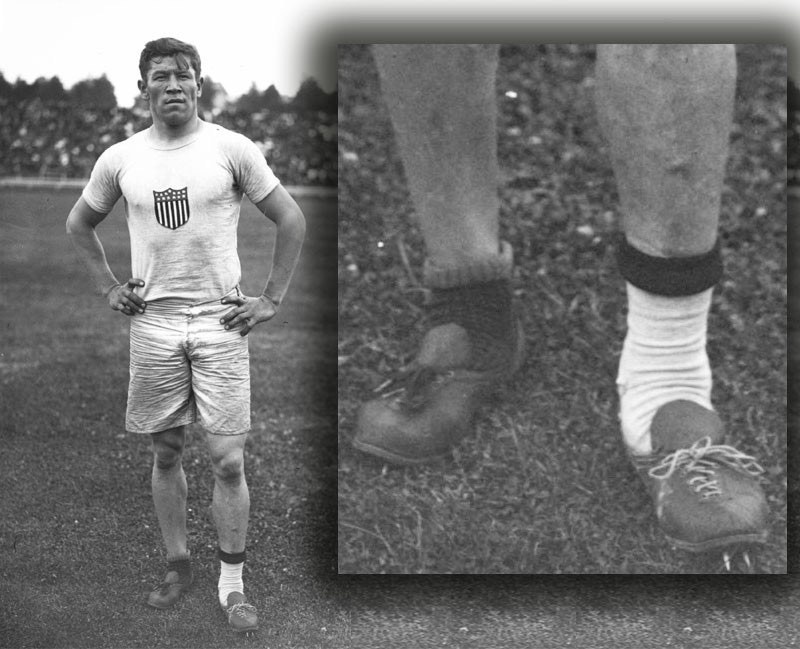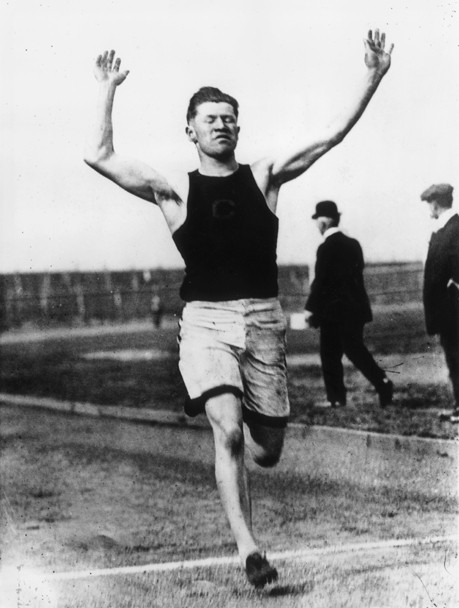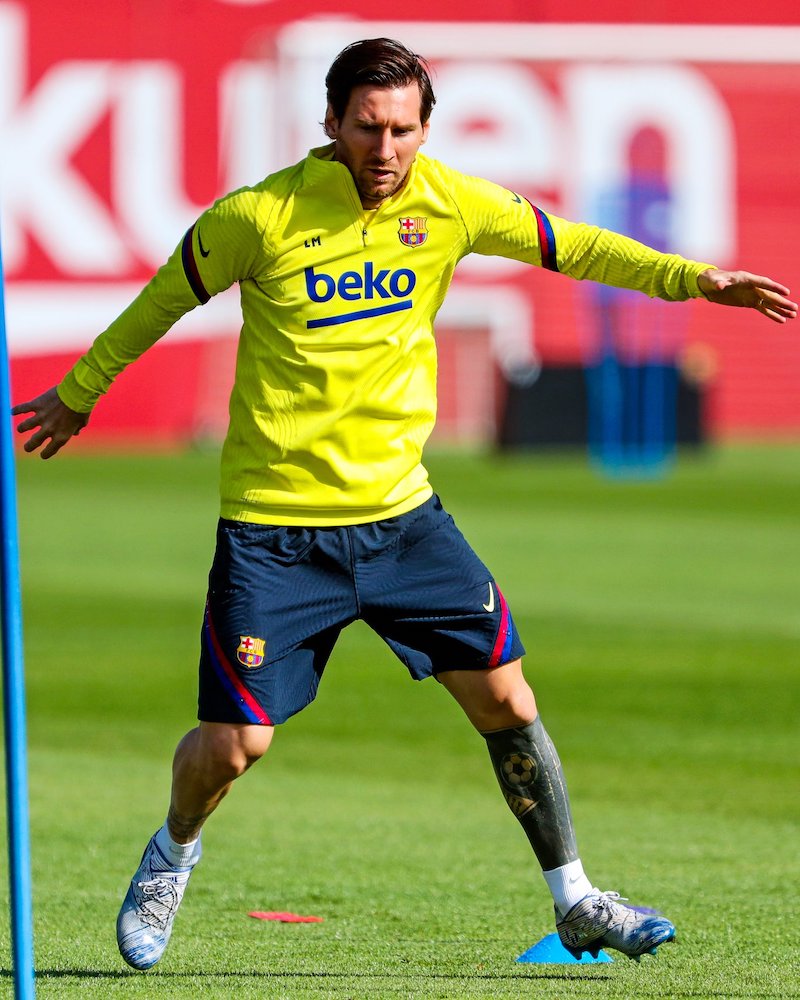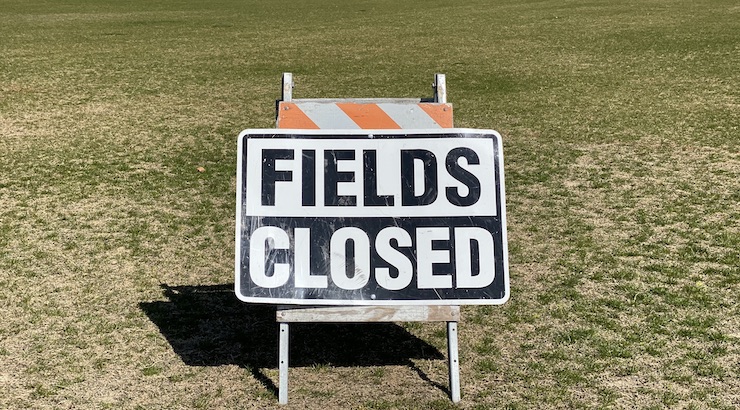B
Bryan Price
Guest
You Can Control The Mental Side Of Your Soccer Game
Epic performances are rare. Looking back more than 100 years to the Olympics in Stockholm gives us all a chance to clearly recognize the power of mental strength — and not wasting time trying to control the things we can’t even begin to control.

Bryan Price
When Jim Thorpe woke up on the second day of competition during the 3-day decathlon in the 1912 Olympic games in London, he had to have felt extremely confident.
Thorpe had been voted the “Greatest Athlete of the First Half of the 20th Century” and was arguably the greatest athlete the United States has ever produced back then. Thorpe had already won Gold in the pentathlon a week prior. In fact, he had won four of the five events.
And, on the first day of the decathlon, he ran the 100m dash in 11.2 seconds. In the rain. That record would stand for another 36 years.
Yes, that’s right. Somebody had stolen his cleats.

Imagine training for four years for the Olympics, and the only piece of equipment you need to compete in your event is stolen.
He and his coach rummaged around and eventually found two shoes, allegedly in the garbage, that Thorpe could wear.
The problem was that the two shoes were not a pair. One was demonstrably bigger than the other, forcing Thorpe to wear additional socks on one foot in order for them to fit appropriately.
Thorpe then went out and won the high-jump event and left the field gasping when he won the 110m hurdles in another record time.
He finished in a ‘pedestrian’ 3rd and 4th place in the pole vault and the javelin, his two worst events. Then Thorpe toed the line, still in his mismatched shoes, for the decathlon’s final event – the 1,500m race.
He obliterated the field, running it in 4:40.1, a time that no other Olympic decathlete would beat for another six decades.

Jim Thorpe in 1912 at the Olympics
When I speak to athletes about “controlling the controllables,” I tell Thorpe’s story. And, this story is maybe more applicable now, during the COVID-19 crisis, than ever.
For players, things that we cannot control include when and how we are going to get back onto the pitch, the fallout from the dismantling of the U.S. Soccer Development Academy (DA) system, and what the professional leagues and the NCAA are going to do moving forward.
Read: U.S. SOCCER DEVELOPMENT ACADEMY CLOSES. IT’S OFFICIAL
Putting our energy and focus on things we cannot control makes us feel anxious, uncertain, and fearful.
On the other hand, putting all of your focus and energy on things you can impact — what sports psychologists call “controlling the controllables” — makes you feel empowered.
You remove all of the noise that doesn’t matter and focus only on the signal, on what’s important.
Things You Can’t Control in Soccer: Your Size
When Barcelona star Lionel Messi was growing up, he was diagnosed with a disorder that stunted his physical growth. This growth hormone disorder left him considerably smaller than the other players, and it required him to stick himself with a needle every night for three years, starting when he was 11-years old.

FC Barcelona’s Messi training during the COVID-19 Pandemic – May 15, 2020
“I was so small,” Messi once said, “that when I went onto the pitch, or when I went to school, I was always the smallest of all.”
Imagine if Messi obsessed about his ailment and lack of size, especially during a time in everyone’s life when we are particularly sensitive about our physical appearance and want to fit in with our peers.
Messi didn’t waste any time feeling sorry for himself, or complaining about how unfair it was that he was not growing like the other boys. Instead, he focused on what he could control – his skills, work ethic, and attitude.
Things You Can’t Control in Soccer: Your Current Situation
Another example of “controlling the controllables” comes from Liverpool FC star Mohamed Salah. (Mohamed Salah is one of the most prolific forwards in European football and a Champions League winner with Liverpool.)

Liverpool FC’s star Mohamed Salah
Salah grew up in a small Egyptian village, fell in love with soccer when he was seven, and like most of us, dreamed of playing at the highest levels one day.
When he was 14, Saleh finally got an opportunity to make his dream a reality when he received an offer to play for the Arab Contractors club out of Cairo. The only problem was that it was four and half hours away.
That meant that Saleh had to leave school early at 9 AM, jump on a bus, and sometimes transferring to other buses up to five times in order to reach the club by 2 PM for his 2-hour training session. Then he was back on the bus again at 6 PM for another four-and-a-half-hour ride home.
“I was coming from nothing,” Salah said. “A 14-year-old kid with a dream. I didn’t know it would happen, I just wanted it to happen so badly.”

Liverpool FC’s star Mohamed Salah
Salah knew he couldn’t control where he lived at that point in his life. He couldn’t control the fact that his club was over four hours away. But when he rolled off that bus in Cairo for practice, he was in control of everything he did on that pitch. And he made the most of his opportunities.
Some are lucky to have parks still open or backyards to get work in. Others are not so lucky.
But ask yourself, what can you do that is in your control to make you a better player today?
Things You Can’t Control in Soccer: Your Playing Time
“Imagine this: You’ve scored more goals than any human being on the planet—female or male. You’ve co-captained and led Team USA in almost every category for the past decade. And you and your coach sit down and decide together that you won’t be a starter in your last World Cup for Team USA.”
These are the words of Abby Wambach in her famous graduation speech to Barnard College in 2018. – Rule Two: LEAD FROM THE BENCH
Wambach was at the tail end of her illustrious career, but playing time is in the hands of the coach, not the player.

Abby Wambach
Even for an amazing player and a Hall-of-Famer like Wambach.
So did she pitch a fit, or sulk?
Did she complain to the media about how unfair she was being treated? There are many soccer fans who would’ve been sympathetic. Some would have even thought that kind of reaction would have been justified.
She decided to lead her team from the bench – in her attitude, effort, and play as a reserve.
Teammate and Hall of Famer Julie Foudy recently said to Soccer Today, “I would argue that they don’t win that World Cup if Abby hadn’t accepted that role the way she did.”

Bryan Price and Julie Foudy on the Power and Importance of Mental Strength
Read: MAKING THESE DAYS COUNT: SOCCER STAR JULIE FOUDY ON WHY MENTAL SKILLS COUNT
I realize that Wambach’s situation is different from most players worrying about playing time. Most of us are not on the tail-end of a Hall of Fame career.
But the rules of “controlling the controllables” still applies. I tell my athletes, I don’t care if you are the last player off the bench and only playing five minutes of proverbial “garbage time.” Play those five minutes as though they’re the only five minutes you’ll ever play. Play with passion. Make those the best five minutes of your career.
After all, what’s the alternative?
Your chances of getting more playing time only increase when you display every ounce of effort, commitment, and focus during the moments when you’re on the pitch.
Sulking, moping, and displaying poor body language is only going to reinforce your coach’s opinion of you as a player. That behavior will only garner you less playing time, not more.
The Final Word

Soccer Fields closed due to Coronavirus COVIC-19 in America
There are so many things beyond our control in this COVID-19 crisis.
Focusing on the things we cannot control, worrying about what the future may bring, and complaining about our current situation is a loser’s game.
When you find yourself reflexively worrying about things beyond your control, or you hear your teammates and coaches doing it, think about Jim Thorpe’s stolen shoes. Think about Messi taking nightly injections and Saleh during his 9-hour commute.
Instead of wasting time and energy on the noise, do what the great ones do. Adopt the mindset of a champion.
Read: MAKING THESE COVID-19 DAYS COUNT WITH BRYAN PRICE & JULIE FOUDY
The post IN SOCCER, CONTROL THE CONTROLLABLES appeared first on SoccerToday.
Continue reading...
SoccerToday News from Diane Scavuzzo
Epic performances are rare. Looking back more than 100 years to the Olympics in Stockholm gives us all a chance to clearly recognize the power of mental strength — and not wasting time trying to control the things we can’t even begin to control.

Bryan Price
When Jim Thorpe woke up on the second day of competition during the 3-day decathlon in the 1912 Olympic games in London, he had to have felt extremely confident.
Thorpe had been voted the “Greatest Athlete of the First Half of the 20th Century” and was arguably the greatest athlete the United States has ever produced back then. Thorpe had already won Gold in the pentathlon a week prior. In fact, he had won four of the five events.
And, on the first day of the decathlon, he ran the 100m dash in 11.2 seconds. In the rain. That record would stand for another 36 years.
But, on the second day of the decathlon, someone had stolen his cleats.
Yes, that’s right. Somebody had stolen his cleats.

Imagine training for four years for the Olympics, and the only piece of equipment you need to compete in your event is stolen.
So what did Thorpe do?
He and his coach rummaged around and eventually found two shoes, allegedly in the garbage, that Thorpe could wear.
The problem was that the two shoes were not a pair. One was demonstrably bigger than the other, forcing Thorpe to wear additional socks on one foot in order for them to fit appropriately.
Thorpe then went out and won the high-jump event and left the field gasping when he won the 110m hurdles in another record time.
He finished in a ‘pedestrian’ 3rd and 4th place in the pole vault and the javelin, his two worst events. Then Thorpe toed the line, still in his mismatched shoes, for the decathlon’s final event – the 1,500m race.
He obliterated the field, running it in 4:40.1, a time that no other Olympic decathlete would beat for another six decades.

Jim Thorpe in 1912 at the Olympics
When I speak to athletes about “controlling the controllables,” I tell Thorpe’s story. And, this story is maybe more applicable now, during the COVID-19 crisis, than ever.
Too often, we as athletes, coaches, and parents, waste time worrying and complaining about things beyond our control.
For players, things that we cannot control include when and how we are going to get back onto the pitch, the fallout from the dismantling of the U.S. Soccer Development Academy (DA) system, and what the professional leagues and the NCAA are going to do moving forward.
Read: U.S. SOCCER DEVELOPMENT ACADEMY CLOSES. IT’S OFFICIAL
Putting our energy and focus on things we cannot control makes us feel anxious, uncertain, and fearful.
On the other hand, putting all of your focus and energy on things you can impact — what sports psychologists call “controlling the controllables” — makes you feel empowered.
You remove all of the noise that doesn’t matter and focus only on the signal, on what’s important.
Things You Can’t Control in Soccer: Your Size
When Barcelona star Lionel Messi was growing up, he was diagnosed with a disorder that stunted his physical growth. This growth hormone disorder left him considerably smaller than the other players, and it required him to stick himself with a needle every night for three years, starting when he was 11-years old.

FC Barcelona’s Messi training during the COVID-19 Pandemic – May 15, 2020
“I was so small,” Messi once said, “that when I went onto the pitch, or when I went to school, I was always the smallest of all.”
Imagine if Messi obsessed about his ailment and lack of size, especially during a time in everyone’s life when we are particularly sensitive about our physical appearance and want to fit in with our peers.
Messi didn’t waste any time feeling sorry for himself, or complaining about how unfair it was that he was not growing like the other boys. Instead, he focused on what he could control – his skills, work ethic, and attitude.
Things You Can’t Control in Soccer: Your Current Situation
Another example of “controlling the controllables” comes from Liverpool FC star Mohamed Salah. (Mohamed Salah is one of the most prolific forwards in European football and a Champions League winner with Liverpool.)

Liverpool FC’s star Mohamed Salah
Salah grew up in a small Egyptian village, fell in love with soccer when he was seven, and like most of us, dreamed of playing at the highest levels one day.
When he was 14, Saleh finally got an opportunity to make his dream a reality when he received an offer to play for the Arab Contractors club out of Cairo. The only problem was that it was four and half hours away.
That meant that Saleh had to leave school early at 9 AM, jump on a bus, and sometimes transferring to other buses up to five times in order to reach the club by 2 PM for his 2-hour training session. Then he was back on the bus again at 6 PM for another four-and-a-half-hour ride home.
It was a 9-hour commute. Salah did this five days a week for the next four years of his life.
“I was coming from nothing,” Salah said. “A 14-year-old kid with a dream. I didn’t know it would happen, I just wanted it to happen so badly.”

Liverpool FC’s star Mohamed Salah
Salah knew he couldn’t control where he lived at that point in his life. He couldn’t control the fact that his club was over four hours away. But when he rolled off that bus in Cairo for practice, he was in control of everything he did on that pitch. And he made the most of his opportunities.
Like Salah, many players today cannot control where they live or their family situation in this COVID-19 crisis.
Some are lucky to have parks still open or backyards to get work in. Others are not so lucky.
But ask yourself, what can you do that is in your control to make you a better player today?
Things You Can’t Control in Soccer: Your Playing Time
“Imagine this: You’ve scored more goals than any human being on the planet—female or male. You’ve co-captained and led Team USA in almost every category for the past decade. And you and your coach sit down and decide together that you won’t be a starter in your last World Cup for Team USA.”
This is not a hypothetical scenario.
These are the words of Abby Wambach in her famous graduation speech to Barnard College in 2018. – Rule Two: LEAD FROM THE BENCH
Wambach was at the tail end of her illustrious career, but playing time is in the hands of the coach, not the player.

Abby Wambach
Even for an amazing player and a Hall-of-Famer like Wambach.
So did she pitch a fit, or sulk?
Did she complain to the media about how unfair she was being treated? There are many soccer fans who would’ve been sympathetic. Some would have even thought that kind of reaction would have been justified.
No, Wambach chose to control the controllables.
She decided to lead her team from the bench – in her attitude, effort, and play as a reserve.
Teammate and Hall of Famer Julie Foudy recently said to Soccer Today, “I would argue that they don’t win that World Cup if Abby hadn’t accepted that role the way she did.”

Bryan Price and Julie Foudy on the Power and Importance of Mental Strength
Read: MAKING THESE DAYS COUNT: SOCCER STAR JULIE FOUDY ON WHY MENTAL SKILLS COUNT
I realize that Wambach’s situation is different from most players worrying about playing time. Most of us are not on the tail-end of a Hall of Fame career.
But the rules of “controlling the controllables” still applies. I tell my athletes, I don’t care if you are the last player off the bench and only playing five minutes of proverbial “garbage time.” Play those five minutes as though they’re the only five minutes you’ll ever play. Play with passion. Make those the best five minutes of your career.
After all, what’s the alternative?
Your chances of getting more playing time only increase when you display every ounce of effort, commitment, and focus during the moments when you’re on the pitch.
Complaining about playing time — something outside of your control — is a waste.
Sulking, moping, and displaying poor body language is only going to reinforce your coach’s opinion of you as a player. That behavior will only garner you less playing time, not more.
The Final Word

Soccer Fields closed due to Coronavirus COVIC-19 in America
There are so many things beyond our control in this COVID-19 crisis.
Focusing on the things we cannot control, worrying about what the future may bring, and complaining about our current situation is a loser’s game.
When you find yourself reflexively worrying about things beyond your control, or you hear your teammates and coaches doing it, think about Jim Thorpe’s stolen shoes. Think about Messi taking nightly injections and Saleh during his 9-hour commute.
Instead of wasting time and energy on the noise, do what the great ones do. Adopt the mindset of a champion.
“Control the controllables” is a winning strategy in soccer, and in life.
Read: MAKING THESE COVID-19 DAYS COUNT WITH BRYAN PRICE & JULIE FOUDY
The post IN SOCCER, CONTROL THE CONTROLLABLES appeared first on SoccerToday.
Continue reading...
SoccerToday News from Diane Scavuzzo
